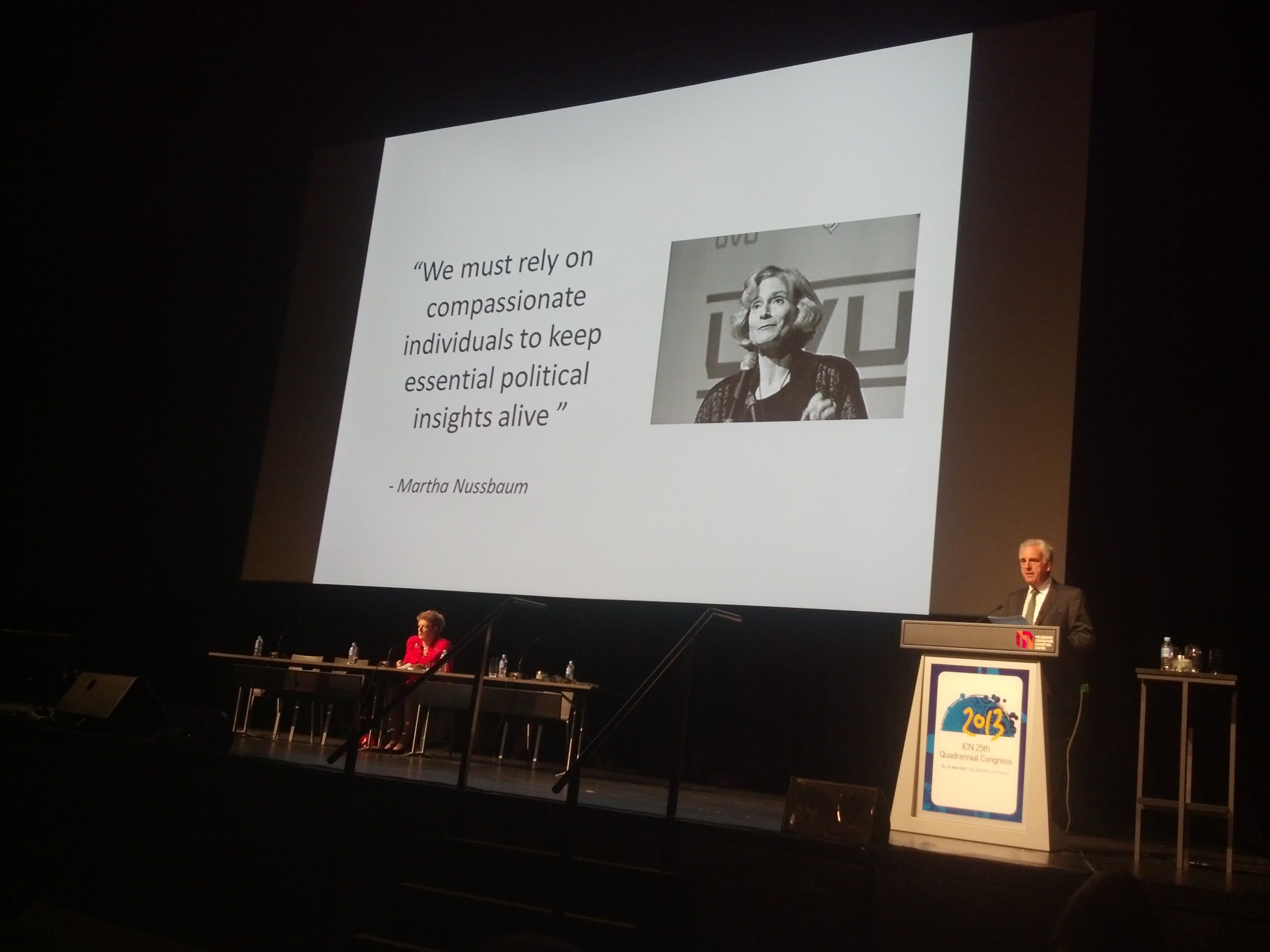Nurses role globally to keep social justice and human rights alive
Barbara Glickstein is the co-director of the Center for Health, Media & Policy and is reporting from Australia.
“Equity is an ethical principle; it also is consonant with and closely related to human rights principles”
Braveman and Gruskin 2003
It was early morning. Most felt out-of-whack as their confused body rhythms adjusted to the Australian time zone after hours in flight to Melbourne.
They streamed into the Melbourne Convention Center auditorium, chose their seats, exchanged smiles or words of introduction to those next to them from lands distances away from their home countries. There were close to 4000 nurses from over 130 countries in Melbourne to attend the International Congress of Nurses. The local Australian host nurses, who worked planning this Congress for years, greeted their guests with warm Aussie hospitality.
The energy in the room was palpable gearing up to hear the first keynote address by Michel D. Kazatchkine MD, United Nations Special Envoy for HIV/AIDS in Eastern Europe, on the Congress’ theme “Equity and Access to Healthcare.”
Dr. Kazatchkine reported that the inequitable burden of infectious disease globally is concentrated in developing countries where 90% of infections, mainly HIV/AIDS, TB and malaria, kill up to 4 million people a year.
The response to these inequities demands a redistribution of resources and an increase access to health and education. He said, “Health should no longer be expected as an outcome of development, but rather as a necessary priority investment for development and economic growth.”
He noted that as a result of social mobilization and political engagement access to health care is increasingly being accepted as a human right globally. Innovation in new forms of global governance created high level decision-making bodies where community members, government officials and corporate representatives each held an equal vote shaping policies.





